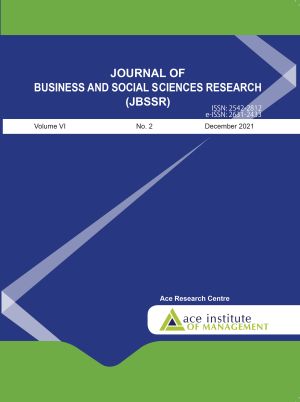Use, Acceptance and Applicability of Virtual Learning by MBA Students in Kathmandu
DOI:
https://doi.org/10.3126/jbssr.v6i2.44713Keywords:
E-learning, MBA programme, UTAUT, Virtual learningAbstract
The present paper aims to study the MBA programme students’ behavioural intention, use, acceptance and the applicability of virtual learning in Kathmandu. Besides, the study also aims at identifying the influence of performance expectancy, effort expectancy, social influence, and facilitating (UTAUT constructs) conditions on behavioural intention and user acceptance of virtual learning. The research paper is based on descriptive research design and inferential analysis. The study made use of primary data collected through a structured questionnaire surveyed on 142 MBA students using a convenience sampling technique. The results showed that MBA programme students have behavioural intention and use and accept virtual learning. Performance expectancy, social influence, and facilitating conditions have a significantly positive impact on both behavioural intention and user acceptance of virtual learning. Besides, performance expectancy and social influence impacted both the behavioural intention and user acceptance of virtual learning the most. MBA students intend to use virtual learning and have agreed to accept and use virtual learning. Therefore, business schools should invest in technologies for improving virtual learning. To maximise the use of virtual learning, its usefulness should be showed to students; and teachers/ peers’ encouragement also increases the use of virtual learning.
Downloads
Downloads
Published
How to Cite
Issue
Section
License
© JBSSR/AIM
Authors are required to transfer their Copyright to the Journal of Business and Social Sciences Research.




